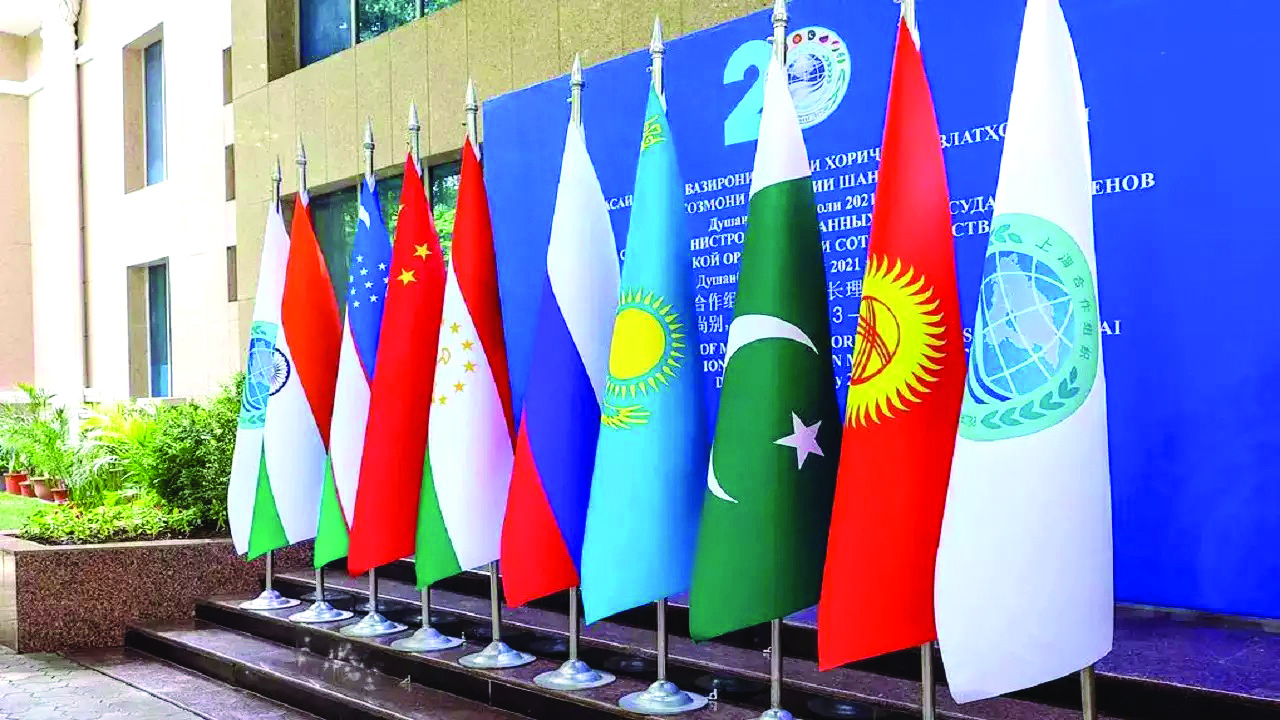India for greater cooperation among SCO member nations
‘Concept of Reduce, Reuse, Recycle & circular economy has been a part of Indian lifestyle for years, which inspires us to walk in harmony with nature’

Amid fears of a global recession, India on Wednesday underlined the need for greater cooperation among Shanghai Cooperation Organisation (SCO) members for combating challenges relating to food and energy security.
Addressing the Council Meet of the SCO Inter-bank Consortium (IBC), Financial Services Secretary Vivek Joshi said as part of India’s contribution to mitigating the above challenges, Prime Minister Narendra Modi has launched global mission LIFE’ which stands for Lifestyle for Environment.
LIFE envisions replacing the prevalent ‘use-and-dispose’ economy governed by mindless and destructive consumption with a circular economy, which would be defined by mindful utilization of resources, he said in his inaugural address.
“Today, when the world is facing challenges of a looming economic recession, a closer cooperation among SCO member states shall play a pivotal role in combating global challenges such as food and energy security concerns,” he said. Observing that India is inclined towards building a sustainable and resilient infrastructure, Joshi said, resilient infrastructure is not just about safe transfer of goods and services across roads, bridges or railways but it is also about the people, households and the communities that depend upon these systems as a lifeline to better health, education and secure livelihood.
There is a felt need for SCO members to emphasize the need to integrate resilience into infrastructure, ensure access, delivery and continuity of essential services to people and communities facing increasing exposure and impact of disasters and extreme climatic events, he said.
“The concept of Reduce, Reuse and Recycle’ and circular economy has been a part of the Indian lifestyle for years, which inspires us to walk in harmony with nature. Mission LIFE will encompass every lifestyle related to the conservation of nature, which our ancestors adopted, and that can be made a part of our lifestyle today,” he said. India endeavours to raise some very pertinent global issues through this forum, he said, adding, Prime Minister Modi has said-”Sustainability requires coordinated action for the global commons.”
Speaking at the meeting, IIFCL Managing Director P R Jaishankar said, the priority areas of cooperation within the SCO IBC include implementation of projects with focus on infrastructure, basic industries, high-tech industries, export-oriented sectors, and social projects; and other areas of common interest.
The coming era will provide opportunities to the member states to grow and prosper together, which is in line with the theme of SCO under India’s chairmanship ‘For a SECURE SCO’ that stands for Security of Citizens, Economic Development, Connectivity, Unity, Respect of Sovereignty and Integrity and Environment protection, Jaishankar said.
SCO member countries contribute about 30 per cent of global GDP and 40 per cent of the world’s population. India has been given the Presidency for the SCO (8-nation grouping) for 2022-23. The members of the grouping, founded in 2001 in Shanghai, are India, Kazakhstan, China, Kyrgyzstan, Pakistan, Russia, Tajikistan and Uzbekistan.
Observing that India has made significant progress in many Sustainable Development Goals, Jaishankar said the Indian economy has become a lot more formalized, and efficient implementation of welfare schemes has brought about inclusive development.
“In the 75th year of its independence, India stands before you, proudly, as the fifth largest economy of the world and is still rising as the strongest, most enthusiastic democracy,” he said. As per an IMF report, India’s GDP growth in 2022 stood at 6.8 per cent as compared to major economies like the US at 1.6 per cent, the United Kingdom at 3.6 per cent and Europe at 1.9 per cent.
India’s overall exports is expected to have grown at around 14 per cent year-on-year during 2022-23 to $770 billion.
Rapid digitisation of the economy and its acceptance at the social level has unleashed a new potential which has created new pathways for high growth, he said, adding, the government’s capex-led growth strategy will enable India to keep the growth-interest rate differential positive, leading to a sustainable debt to GDP in the medium run. The seven priorities of the Union Budget announced by Finance Minister Nirmala Sitharaman, also called Saptarishi’ are - inclusive development, reaching the last mile, infrastructure and investment, unleashing the potential, green growth, youth power and financial sector.



